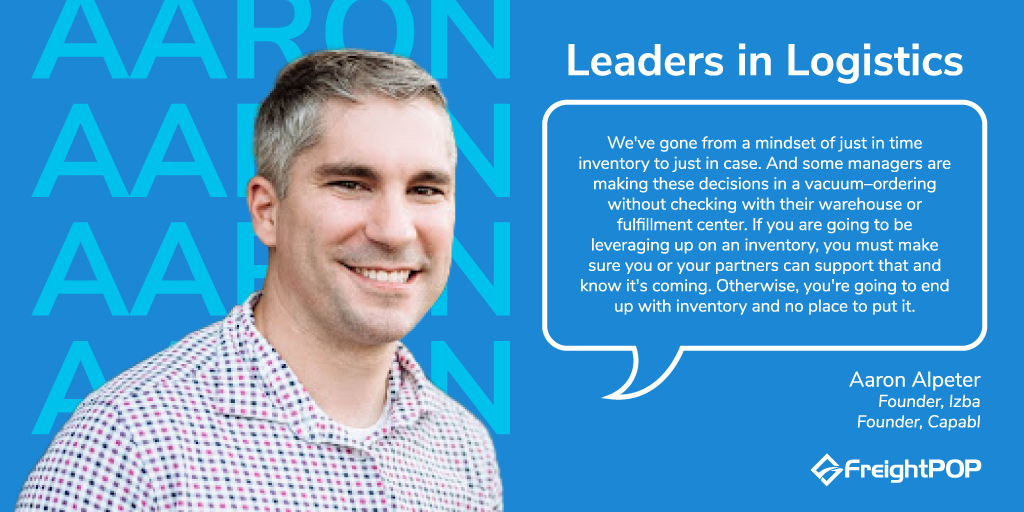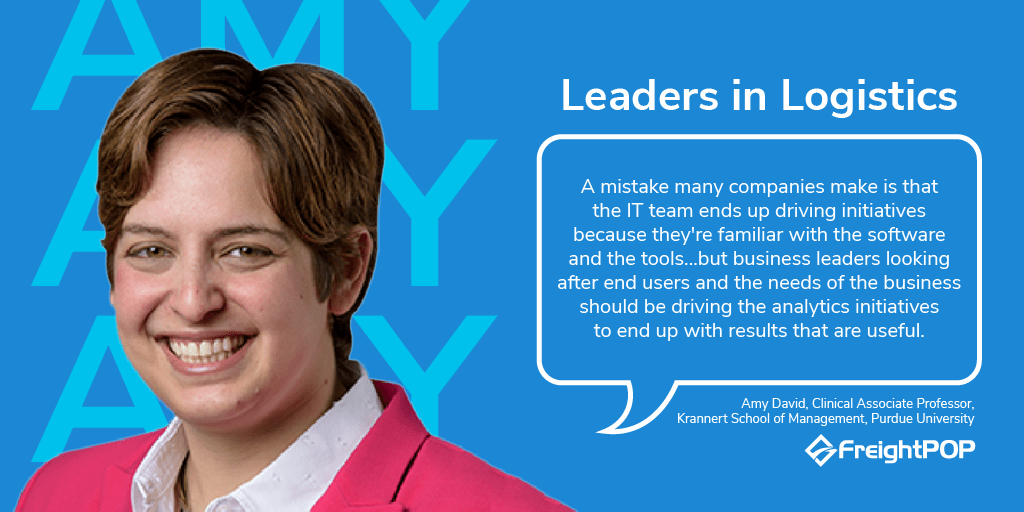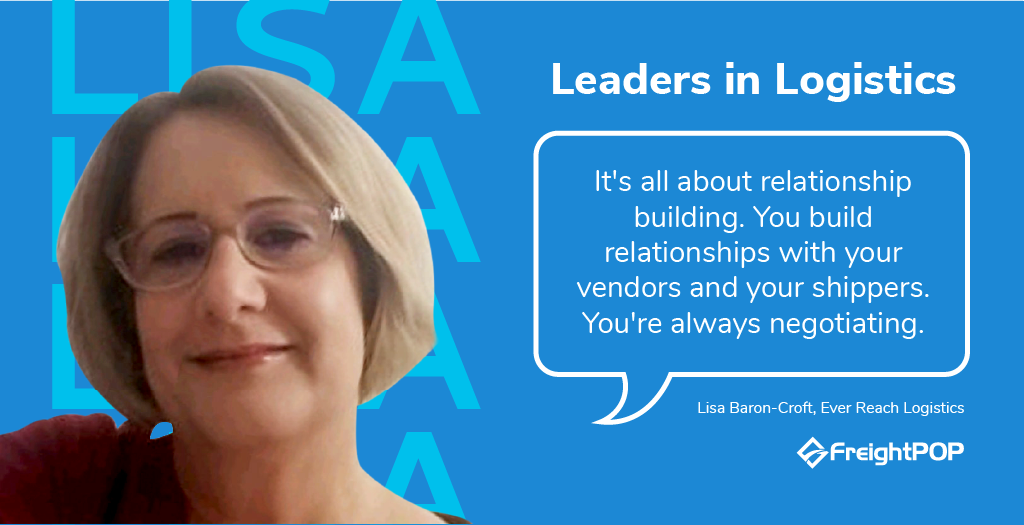What High Volume Shippers Need to Know About Logistics Integration
NEW GUIDE: Learn how high-volume shippers can integrate logistics processes for profit and to save time, avoid unnecessary expenses, and delight...

We talk to Aaron Alpeter, who has an impressive career in supply chain, founding Supply Chain consultancy Izba, and DTC Fulfillment Scorecarding product Capabl.
Aaron Alpeter, Founder and Principal at Izba, an end-to-end supply chain consulting company, and Capabl, which helps D2Cs score fulfillment centers, shares his insights on inventory control, fulfillment center SLAs and talks about his entry into the world of eCommerce.
Aaron: I have always loved logistics and supply chain since I realized what it was. I studied supply chain logistics at Ohio State University. To me supply chain is how ideas and ambitions become a reality. I joined Unilever right out of school and was lucky enough to be part of their very competitive supply chain management program. Through that experience, I had the opportunity to run international logistics and get a close look at Fortune 500 level retail logistics; however, I wanted to learn D2C to get into the eCommerce side of things.
I was introduced to the founders of Hubble Contacts through a colleague at work. They had just raised a seed round and I initially had a conversation with them to teach them “how to supply chain.” Long story short, I ended up first consulting and then joining full-time as their Chief Supply Chain Officer. I was able to help them build from the ground up. And I just loved it. I was hooked on startups from there on out.
Aaron: In the early 2010's when all of these digitally native brands were just starting, it was intriguing. I was working at a large Fortune 500 CPG company, and I wanted to explore ecommerce in more depth, but at the time, there weren't any opportunities for me to do that internally. I wanted to see what ecommerce was going to do to the industry, and being on the frontline was the best place to be.
I had assumed that big CPG companies would eventually catch up and outperform these startups, but I recognized that that might not be the case when I got to see Unilever's acquisition of Dollar Shave Club up close. When it was announced I asked someone very close to the deal about the rationale for buying DSC.
What I was expecting to hear was, "We see the future heading to omnichannel and D2C, and we're going to build a new type of CPG company on the backbone of Dollar Shave…." or something to that extent. To me, that seemed like a reasonable use of a billion dollars.
Instead, what I heard was, "We think we can cross-sell our other brands to their customers by leveraging their data." Seeing as there were cheaper ways to cross-sell to consumers, I recognized that these budding startups (and those that hadn't been started yet) were going to be formidable competitors.
Aaron: During my experience at Hubble, I realized I had built the supply chain in such a way that it was self-reinforcing— self-healing to some extent. And I was only spending around eight hours a week managing that supply chain (80 hours per week managing customer service). After leaving Hubble, I worked at a few other startups both full time and as a consultant helping teams rebuild where their logistics were holding them back.
This eventually led to my idea for Izba. I wanted to apply the insights I'd gained and address the short supply of supply chain experts. I recognized that while many startups needed supply chain expertise, many of them didn’t need an expert full time or their expertise needs changed after a few months. Given that I could provide a way for supply chain management at a fraction of the time, there was a real value for Izba's consulting. We were actually one of the early pioneers of the fractional COO model and have since grown to be a consulting, outsourcing, and technology company.
Aaron: We don't try to be everything for everybody, nor do we pretend to know everything about everything. We are relatively industry agnostic because 85-90% of supply chain principles translate whether you're dealing with apparel, consumer electronics, medical devices, or food. And where that final 10-15% requires certain expertise, we find partners. But by and large, the problems that fast-growing companies have are pretty similar to each other.
We typically work with venture-backed companies around the Series A timeframe, some smaller pre-revenue companies, and a few publicly traded companies.
Aaron: Our whole ethos is to come in and augment their team. So initially, the way that we work with companies is that we scope out a really tight project. We aim to limit the engagement and exposure and truly understand the success criteria. We treat this as an audition for both the potential client and us. After the project we typically move into a month to month retainer where we augment (or become) our clients supply chain team. As they grow we will work to build their internal team first by hiring employees who we will manage, then hiring someone above us to manage us. The whole goal is to leave behind an exceptionally strong supply chain once we’ve moved on and continue to support in different ways.
Aaron: Now, people definitely recognize their supply chains as more of a vital strategic asset. Previously, say 10-15 years ago, supply chains were only ever treated as a cost center. But really, in the last five years, and especially since 2020, people are better at appreciating that this is how things get done.
Izba has grown pretty aggressively both on a headcount and revenue side as a result. We've also brought in some very specific expertise, from places like freight forwarders, trucking companies, manufacturing, and planning. This allows us to help our clients avoid a lot of the early delays that can happen that are not readily apparent, such as understanding market rates better or knowing strategies that make them more efficient.
Aaron: A good example of this is last summer’s shortage of space on vessels and containers. We recognized early on that even if you could fill up a full container, you would be guaranteed to be loaded if you shipped it as an LCL container (vs. an FCL).
When ocean carriers sign LCL contracts, their space is guaranteed. This is because LCL usually impacts many customers at a time, so when the carriers have to decide who to bump from a booking they want to upset as few people as possible. So there's guaranteed space there if you ship LCL. So we shifted our clients volume away from FCL over to LCL, paid a slight premium, and got the guarantee of getting on those products to come across.
Aaron: It's really interesting how the psyche has changed regarding inventory. We've gone from a mindset of just in time inventory to just in case.
When there were severe delays and people were out of stock, the immediate thing they did was to order extra. They were thinking, let me just get as many pieces as possible if it's going to take a long time because I have to cross an ocean. Let me at least have the inventory here. I'll deal with the cash investment on the back end.
And some managers are making these decisions in a vacuum—ordering without checking with their warehouse or fulfillment center. If you are going to be leveraging up an inventory, you must make sure you or your partners can support that and know it's coming. Otherwise, you're going to end up with inventory and no place to put it.
Aaron: This year, we launched a new SaaS product Capabl. Capabl is an automated scorecard that helps brands and fulfillment centers monitor SLA compliance.
As a consultancy we’ve worked with hundreds of brands and fulfillment centers. One thing that we noticed was that despite everybody signing a contract and agreeing to an SLA, measuring that SLA can be very difficult and there were basically 3 options. First the fulfillment center can invest their own labor or development resources to create a scorecard, but this essentially means that they are “grading their own test” and the accuracy of this is always in the back of their mind for brands.
Second option is for the brands to create their own scorecard, which means that that fulfillment center has to deal with dozens of methodologies and versions. The final, most common, option is that metrics aren’t measured. This results in fulfillment centers not getting credit for doing a good job and brands not having the full context of the relationship. Brands are forced to use their customers as quality control for their fulfillment centers and many relationships can be emotionally charged as a result.
Think of Capabl as a neutral 3rd party to help keep score.
Join our other logistics leaders and share your insights and the good work your business is doing. Register for an interview in our Leaders in Logistics!

NEW GUIDE: Learn how high-volume shippers can integrate logistics processes for profit and to save time, avoid unnecessary expenses, and delight...

Digitizing logistics is a goal of many businesses, primarily for efficiency, but also to become data-driven. We ask an expert how accessible...

Welcome to FreightPOP's Leaders in Logistics feature, where we talk to professionals who share their experiences and best practices.